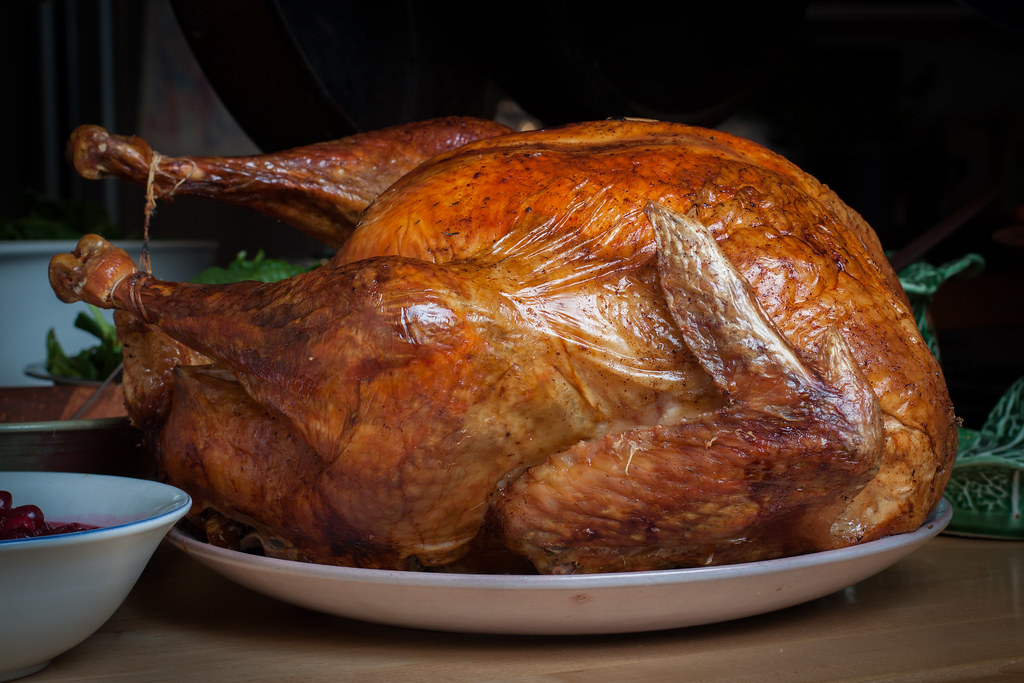By Dora Gilreath
Entertainment Editor

Thanksgiving, a holiday that either brings joy to Americans with visions of laughter, football games, and delectable dishes, or brings a feeling of dread at the thought of interacting with in-laws through dry conversation and even drier turkey. Do we even know why we celebrate Thanksgiving, or is it just an excuse to stuff our faces and prepare for the next day when we fist fight over a discounted toaster? Thanksgiving should not only be a time to give thanks, but also a time where we re-examine our history.
When we think of the story of Thanksgiving, we usually think of the kind pilgrims coming to America nearly four centuries ago donning buckled shoes and hats. Once they landed on Plymouth Rock, the local Native Americans taught them the ways of the land, like how to grow corn. Then they all had a big turkey dinner and lived happily ever after!
Unfortunately, the true version of the tale is anything but happy. It wasn’t even the first Thanksgiving!
According to Áine Cain, senior reporter for Insider, the exact date of the first Thanksgiving has been debated. Some suggest it began as early as the 1500s with Spanish settlers and members of the Seloy tribe sharing a meal and participating in Mass.
Others suggest 1637, when Massachusetts governor at the time Jon Winthrop called for a day of celebration after the successful slaughter of several members of the Pequot tribe. Whenever the first official Thanksgiving actually was, it certainly wasn’t the fairytale harvest story told in the classroom.
The alliance between the Wampanoag tribe and the English settlers didn’t last, which led to wars and the deaths of many. More and more English colonizers began to move to Plymouth and take over more land, and with them they brought disease which would wipe out 90% of the New England Indegenous population.
In addition, Thanksgiving is the National Day of Mourning for many Native Americans, thanks to Aquinnah Wampanoag activist Frank James. According to WBUR, Inegnous people from several tribes from not only the United States, but Canada and South America as well, participate by fasting the entire day and mourning the lives lost and the land taken. Through prayers, speeches, and conversations, they reflect on the current struggles Indigenous people face today, including the effects of COVID-19.
Kisha James, president of Wellesley College’s Native American Student Association and granddaughter to Frank James, stated “Try to divorce your Thanksgiving celebrations from the Thanksgiving mythology. So no more pilgrims and Indians, no more teaching your children about the first Thanksgiving as we learn it in public school where it was a friendly meal.”
This means accepting some uncomfortable truths, which many people find hard to accept. James states, “We’re essentially extending our hand to these people and saying, here’s the truth. If you want to learn the truth and accept the truth, come with us. And unfortunately, some people don’t want to take our hand because they’re committed to dying on the wrong side of history.”
So, is it really time to quit Thanksgiving cold turkey? Not necessarily. After all, spending time with family over a feast is so intrinsically woven within our culture. However, it should also be a time of reflection. November is also Native American Heritage month. Donate and support local Native businesses and charities, visit local museums and reservations, and read and listen to stories from Native Americans. Most importantly, we must abandon the watered-down version of history we’ve grown so accustomed to, even if it ruffles a few turkey feathers.

Leave a Reply